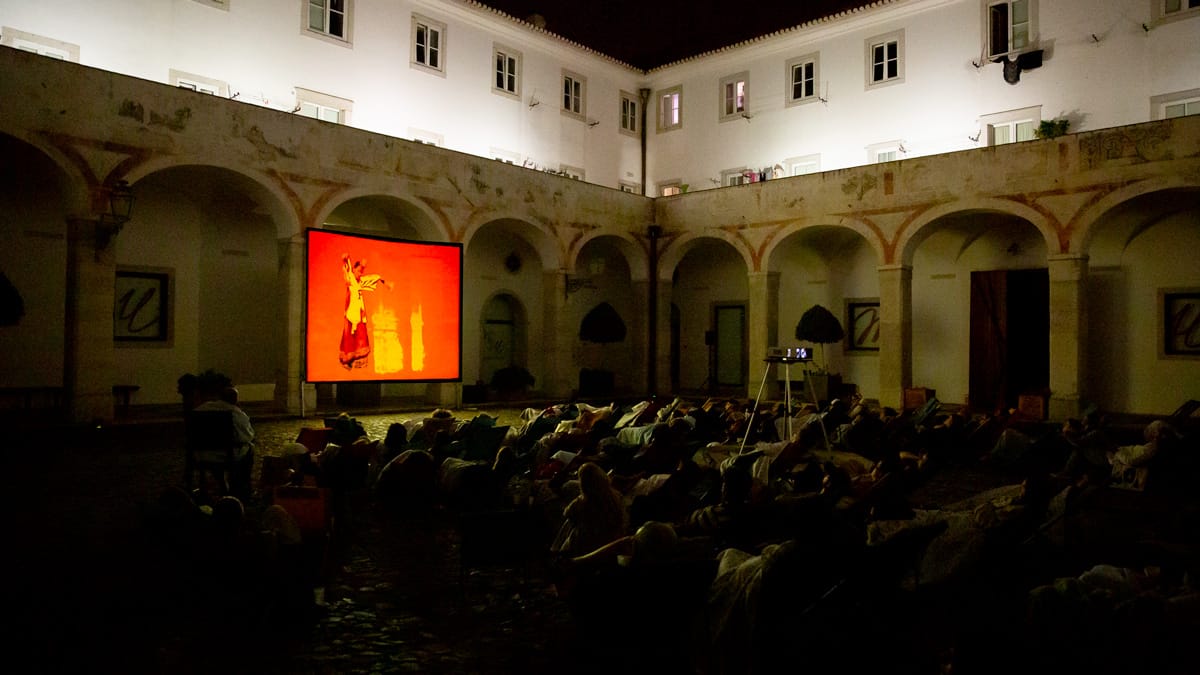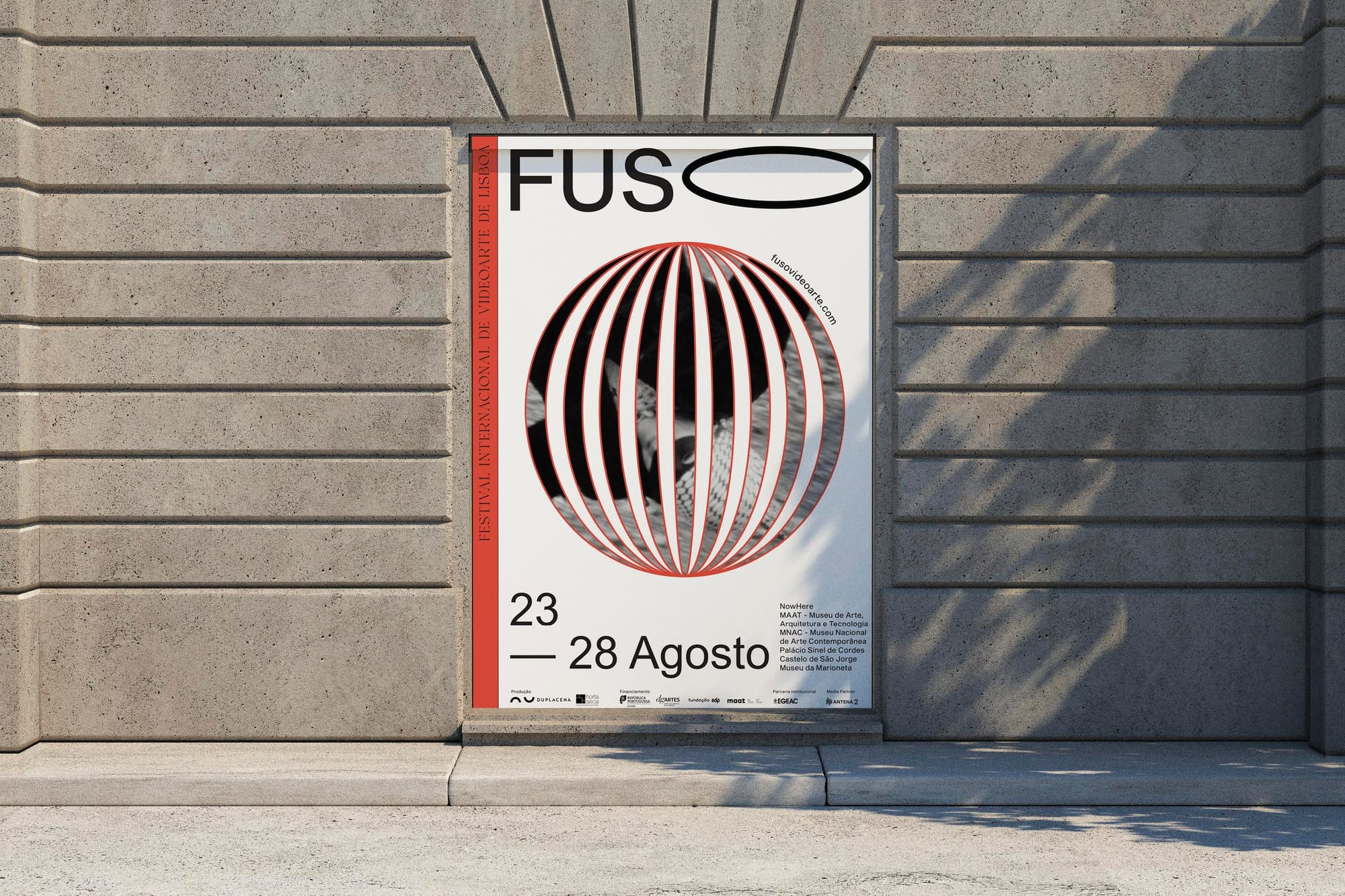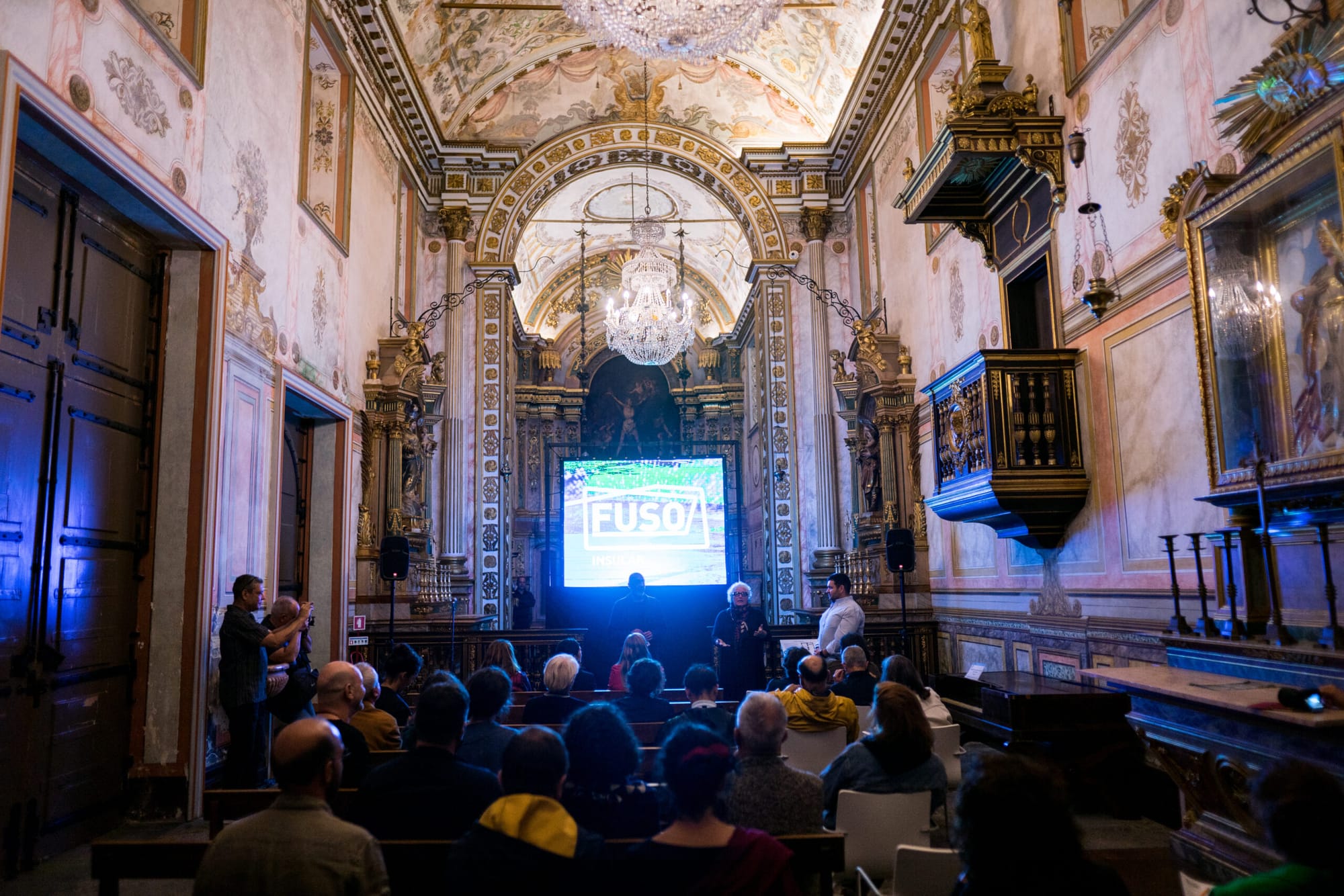
FUSO is one of the first festivals in Portugal dedicated to showing moving image art. It was founded in 2009, at a time when video art was most regularly seen in museums and contemporary art centers. Fifteen years later and the festival is expanding its mission with FUSO Insular, a satellite event and residency program in the Azorean archipelago that is designed to expose the local public to moving image art and offer education to emerging practitioners there.
FUSO maintains an open call for video artists in Portugal and also of Portuguese descent around the world. The festival invites guest curators who organize programs along thematic lines and participate on panel discussions. FUSO is an open air event, with outdoor screenings taking place in varying locations during Lisbon summers.
We spoke to FUSO artistic director Jean-François Chougnet about the history of the festival and the moving image art scene in Portugal. We also spoke with FUSO Insular artistic director Rachel Korman about the programs she runs on the islands and their plans for developing moving image culture in the region.
FUSO was established in 2009. What was the landscape for video art festivals at that time in Portugal, and what is the landscape like 15 years later?
Chougnet: Portuguese artists took up video in the early 1980s, largely thanks to Ernesto de Sousa (1921-1988), a filmmaker, multidisciplinary artist, and art historian. However, no regular festival was established over the long term. From the late 1990s and especially the 2000s, Portuguese video artists have had a strong presence at international festivals. Notable examples include (this list is not exhaustive) João Penalva, João Tabarra, and of course Julião Sarmento (1948-2021), who, in addition to his pictorial works and having been a pioneer in the 1980s, regularly produced videos since 1996.
The relatively regular presence of video art in the country is based on initiatives such as Vila do Conde “Curtas“ Film Festival (first held in 1993, in a small town near Porto) and, from time to time, IndieLisboa – International Independent Film Festival (created in 2004 in Lisbon). In the 2000s, museums and contemporary art centers gave more prominence to video, but Portugal had not yet established a dedicated festival. FUSO was created in 2009, first within the Berardo Collection Museum (Belém Cultural Center) and then it spread to several sites in the city after 2011.

Portugal has a strong international reputation for directors of feature-length artistic films for the cinema. What would you say characterizes video artists in Portugal, in terms of aesthetics and politics?
Chougnet: Among the generation of filmmakers who became known in the 2000s, few ventured outside of film production. However, Pedro Costa, who has repeatedly produced installations, alone or in a duo with the sculptor Rui Chafes, and of course Gabriel Abrantes, are worthy of mention. Portuguese video art is difficult to define in a few sentences; it is characterized by its diversity, even heterogeneity, which FUSO has championed from the beginning.
In the generation of the 2000s-2010s, we can find a certain formalism and a taste for the experimental, championed by artists such as Alexandre Estrela, João Onofre, and Noe Sendas, or the duo (now separated and working primarily with Super 8) João Maria Gusmão and Pedro Paiva. Emerging artists in the 2020s demonstrate a return to a form of storytelling: Ana Rito, Filipa César or Salomé Lamas (winner of the 2016 FUSO Prize) are just some of the notable names. The Portuguese scene is also now very open to artists from former Portuguese colonies in Africa.
FUSO Insular was founded in 2019 in the Azores. Rachel, you are the artistic director. How do you approach curating this festival, and what makes it unique from the flagship FUSO festival in Lisbon?
Korman: FUSO Insular was founded with the intention of surmounting an existing gap in the artistic panorama of the Azores, concerning the knowledge and training in the area of the moving image. Since there are no art schools in the Azorean archipelago, we focus on fostering artistic creation among the young people and the community in general interested in cinematographic art, through a creative residency programme called Moving Image Laboratory, which is dedicated to stimulating the creation of new works in video. It is a three-month long program, during which we provide both theoretical and practical guidance under the mentorship of artists with extensive experience in this field of work.
Audience building is also an important element of FUSO Insular – and this is where it intersects with FUSO in Lisbon. We bring to the Azores what is being produced in the field of moving images in the world and specifically in Portugal, through the works selected by international and national curators presented at FUSO - International Video Art Festival in Lisbon. The Azores Video Art Screenings, besides being a platform for the exhibition of the works created in the context of the Moving Image Laboratory, makes new work available to a wider audience.We believe that by providing training to local artists and the Azorean community and enhancing the public's knowledge, FUSO Insular is collaborating to enrich the cultural offerings in the Azores.

The Azores seem incredibly beautiful, but also a bit remote. What are some of the challenges you face in organizing a festival and residency program there?
Korman: FUSO Insular is designed for and with the local community. The Azores are nine beautiful and distinct islands, and although we position the festival as a regional project its programs take place almost exclusively on the island of São Miguel. Geographical distance between the islands naturally manifests in the cultural ecosystem, where collaboration is scarce and circulation is difficult. Our greatest challenge is to bring our practices to all the islands, to truly become a regional project. However, we have managed to be present on five islands so far with the Moving Image Laboratory, through the participation of local artists in the residency program and through the presentation of the videos created.
On the other hand, as the Azores are an outermost region located in the middle of the Atlantic between the European and North American continents, and FUSO Insular is a low-budget festival, programming international curators is always a challenge due to the high cost of airfare — which is the only way to travel to the archipelago. However, we believe that efforts must always be made to ensure excellence in the programming.
FUSO Insular is young. What is your vision for developing it in the near future?
Korman: Seeing the growing local interest in contemporary arts — and especially in this small niche that is video art — is the most rewarding aspect of our work. In its six years of existence, the Moving Image Laboratory has already fostered the creation of a small collection, with 45 videos produced in the Azores. Some of these works have gained national and international recognition, being showcased and awarded at other festivals.
From now on, and looking toward the near future, we are investing in an even more robust creative residency program in the field of moving images. Our aim is to offer high-quality theoretical and technical training that provides participants not only with hands-on learning but also a critical perspective on the medium.
